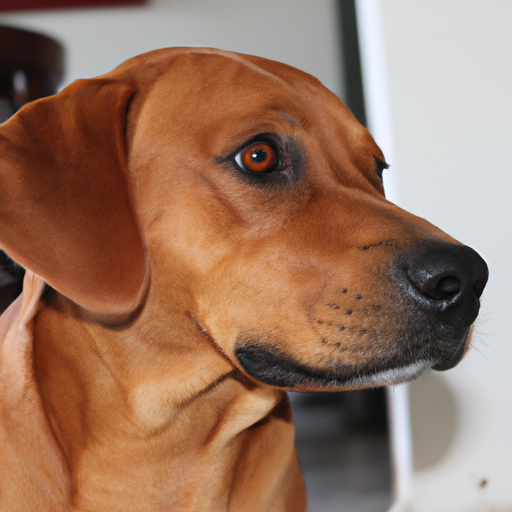As a caregiver, it’s only natural that you grow concerned when your dog starts to growl at seemingly nothing. You look around and see no apparent threat, yet your furry friend’s behavior tells a different story. Let’s delve into the possible reasons behind this behavior and how you can help your pet.
Why Is My Dog Growling At Nothing?
Dogs don’t growl without reason. They may perceive things that you can’t. Here are some possible causes for your dog’s growling:
- Hearing or Smelling Something You Can’t: Dogs have heightened senses. They can hear frequencies and smell things that humans can’t.
- Physical Discomfort: If your dog is hurting, it might growl. It could be a sign of a hidden health issue.
- Anxiety or Fear: Dogs can experience anxiety and fear just like humans. These feelings might trigger growling.
- Hallucinations: Although rare, certain conditions can cause hallucinations in dogs.
- Territorial Behavior: Dogs can get territorial about their space, and growling is a way of defending it.
How Can I Help My Dog?
Understanding the cause is the first step. Here are some strategies to alleviate your dog’s discomfort:
1. Consult a Vet
If your dog’s growling is accompanied by other signs of discomfort, it might be time to consult a vet.
2. Provide a Safe Space
If anxiety is causing your dog to growl, providing a safe, quiet space can help them calm down.
3. Training
Certain training techniques can help your dog cope with their anxieties and fears.
4. Medication
If vet recommends, there are medications available that can help dogs with serious anxiety issues.
What Not To Do
Reacting negatively to your dog’s growling can exacerbate the issue. Here’s what to avoid:
- Don’t Punish Your Dog: Punishing a growling dog can lead to aggressive behavior.
- Don’t Force Interaction: If your dog is growling due to fear or anxiety, forcing interaction can make things worse.
When To Seek Professional Help
Sometimes, professional help is necessary. Here’s when:
- Persisting Symptoms: If your dog’s symptoms persist despite your efforts, it’s time to seek professional help.
- Aggressive Behavior: If your dog’s growling escalates to biting or snapping, consult a professional immediately.
Possible Health Issues
| Health Issue | Symptoms |
|---|---|
| Ear Infection | Scratching ears, shaking head |
| Dental Problems | Difficulty eating, bad breath |
| Arthritis | Difficulty moving, limping |
Conclusion
Understanding your dog’s behavior is crucial to providing the best care. Remember, a growling dog is trying to communicate and it’s our job to listen.
Frequently Asked Questions
Q1: Can a dog’s growling be a sign of aging?
Yes, older dogs can experience cognitive dysfunction syndrome, similar to Alzheimer’s in humans. This can cause confusion and result in growling at nothing.
Q2: Can my dog’s diet impact his behavior?
Yes, a dog’s diet can impact their behavior. A poor diet can lead to physical discomfort, which might cause your dog to growl.
Q3: How can I tell if my dog is growling due to pain?
If your dog is growling due to pain, they might exhibit other symptoms such as limping, difficulty moving, or loss of appetite.
Q4: Can a dog’s growling be a sign of happiness?
In some cases, dogs might “growl” when they’re happy or excited. This sounds different from a fearful or aggressive growl.
Remember, every dog is unique with their own set of needs and behaviors. Your patience, understanding, and care can go a long way in ensuring their well-being.



